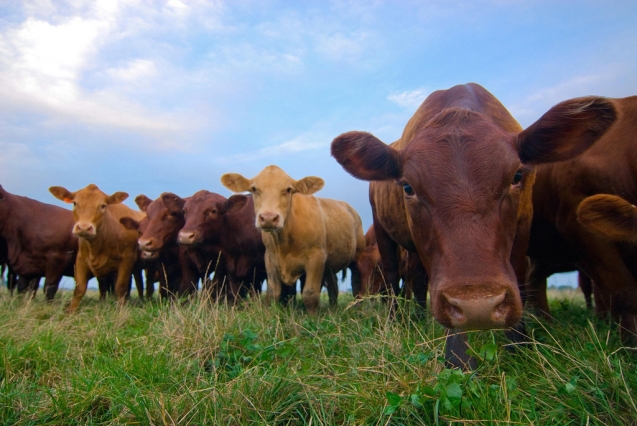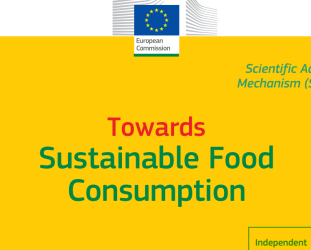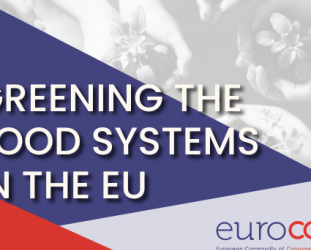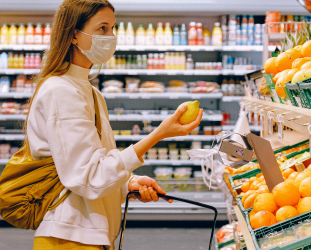Open letter to Commission - Need to reduce use of antibiotics in livestock production
23.05.2013 15:00:42

Commissioner Tonio Borg
Commissioner for Health and Consumers
European Commission
B-1049 Brussels
BELGIUM
Emma Slawinski
Compassion in World Farming
River Court,
Dear Commissioner Borg,
We welcome the European Commission's l2-point action plan of 15 November 2011 for controlling antimicrobial resistance. While the proposals cover the main areas in general terms, we are concerned that detailed proposals to address this serious issue have yet to be published. We feel it is essential that an EU-wide strategy is developed which will be effective in reducing the overuse of antibiotics in agriculture to the minimum required for maintaining animal welfare. We hope that the Commission will include measures with this aim in mind in the forthcoming revision of EU legislation on veterinary medicines and medicated feedingstuffs.
The European Union provided global leadership by phasing out the use of antibiotic growth promoters between 1997 and 2006. A key goal of this action was to reduce the levels of resistant enterococci in farm animals and in humans, and data collected since then shows that this has been achieved [1]. This demonstrates that the rise of antibiotic resistance can be slowed, or even reversed, if firm regulatory action is taken in time.
However, it is widely recognised that many livestock producers responded to the growth-promoter ban by increasing their use of other antibiotics under veterinary prescription. Some of these antibiotics, frequently used for _prophylaxis' (disease prevention) at sub-therapeutic levels in healthy animals, are even more important in human medicine than some of the banned growth promoters, particularly for the treatment of Salmonella, Campylobacter and E. coli infections, which are often of farm-animal origin.
As the Commission has previously made clear, the inappropriate use of antibiotics in human medicine also remains a serious problem, which requires further action. However, this must not detract from the clear evidence that the excessive administration of antibiotics to farm animals is increasingly contributing to treatment problems in human medicine, while also having the potential to create a serious treatment crisis in livestock production as well.
The European Food Safety Authority has said that _Resistant Salmonella and Campy/obacter involved in human disease are mostly spread through foods' [2]. Regarding E coli, EFSA has said that 'Some categories of food may often be contaminated with E. coli, including resistant isolates, and these bacteria reside long enough in the intestines of humans to transfer resistance genes to the residential flora. It is therefore highly probable that food is a vehicle for spread of resistance genes between different ecosystems' [2].
The WHO similarly states that _Resistance in the foodborne zoonotic bacteria Salmonella and Campy/obacter is clearly linked to antibiotic use in food animals, and foodborne diseases caused by such resistant bacteria are well documented in people' and _Resistant E co/i can spread from animals to people through the food chain' [1].
Furthermore, in many European countries over the past decade there have been large increases in use of the critically important antibiotics, the modern cephalosporins and the fluoroquinolones, which have broad-spectrum activity. This has led to the emergence of livestock-associated strains of MRSA, like ST398, and of extended-spectrum beta-lactamase (ESBL) E. coli in farm animals. Our analysis, detailed in the enclosed briefing paper, concludes that it is now beyond reasonable doubt that the current use of antimicrobials in farm animals is contributing to levels of antimicrobial resistance in life-threatening infections in the human population, making prompt and successful treatment more problematic.
As a result of the strength of the evidence, the European Medicines Agency (EMA), EFSA and the WHO have all said that there is a need to reduce the levels of resistance being transmitted from livestock to humans, and highlighted reduced antibiotic use as probably the most effective method available.
We warmly welcome recent actions that the EU has taken for restricting some uses of critically important antibiotics, particularly the modern cephalosporins [3], but believe that much more remains to be done.
In particular, we ask you to include the following as part of an overall strategy for the reduction in the use of antibiotics in farm animals:
1. A legally binding timetable to phase out routine prophylactic use of antibiotics.
We welcome the EMA's 2011 clarification that, for products authorised through the centralised procedure, prophylactic use is not permitted unless the presence of the disease has been established [3]. We are calling on you to ensure that this is extended to all antibiotic products, including those licensed through the decentralised and mutual-recognition procedures, and given legal force by inclusion in revised veterinary-medicines and medicated-feed legislation. At present, it is clear that many within the industry continue to use antibiotics for routine prophylaxis, in the absence of disease, and to believe that this is acceptable practice [5].
2. The ban on the Use of modern cephalosporins in poultry must be fully implemented, and a ban should also be introduced on their use in pigs and for dry-cow therapy in cattle.
We welcome the Commission's Implementing Decision of 13 January 2012 that Member States must add a statement to the Summary of Product Characteristics (SPCs) for modern cephalosporins, saying that the product must not be used in poultry. It is important that the Commission ensures that this is acted upon and then monitored throughout the EU. Danish and Dutch pig producers have already introduced voluntary bans on the use of modern cephalosporins. Very recently published research found that the occurrence of ESBL E. coli in Danish pigs at slaughter fell from 11.8% in 2010 to 3.6% in 2011 after the voluntary ban was introduced in July 2010. The decline in resistance for pigs tested on farms was even larger, from 11% in 2010 to 0% in 2011 [6]. Dutch dairy farmers have also introduced a voluntary ban on the use of modern cephalosporins for dry-cow therapy. According to the Dutch Chief Veterinary Officer, these voluntary bans contributed to a 92% reduction in the Dutch farm use of these antibiotics between 2009 and 2012.
3. Modern cephalosporins should no longer be permitted to be Used off-label.
The risk of ESBL resistance and MRSA transferring from farm animals to humans is too great to permit use of these antibiotics in animals which is not fully regulated.
4. A ban on the Use of fluoroquinolones in poultry.
Fluoroquinolones are critically important antibiotics in human medicine because of their importance for treating infections such as Campylobacter, Salmonella and E. coli. Poultry are recognised as a key source of these infections in humans, and in the case of Campy/obacter, by far the most important source. The United States banned the use of these antibiotics in poultry for this reason.
5. New legislation aimed at improving animal health and welfare and ensuring that farm animals are kept in less-intensive conditions with, wherever possible, access to the outdoors.
It is essential that a farm-animal health and welfare strategy should be recognised as a key tool in helping to address the rise of antibiotic resistance. Improving animal health through increased animal welfare, better system design and the selection of breeds that are less susceptible to disease can dramatically reduce the need for antibiotics.
6. Improved surveillance of antibiotic use and antibiotic-resistant bacteria in farm animals.
We recognise that the Commission has already taken some important initiatives in this regard, both in relation to antibiotic-sales data and to the surveillance of antibiotic resistance. However, it is crucial that sales data be provided by antibiotic class in each animal species, without which the data is of little value for monitoring the relationship between antibiotic use and resistance levels. It is also vital that the Commission uses its powers to ensure that all Member States routinely monitor levels of antibiotic resistance in farm animals and on retail meat for E.coli, Campylobacter, Enterococci, Salmonella and Staphylococcus aureus.
We strongly support the steps the Commission and other EU institutions have already taken in relation to antibiotic resistance of farm-animal origin, and hope that these are just the first steps in the development of a much more responsible and sustainable European antibiotic policy.
Yours sincerely
| Dil Peeling Director of Public Affairs Compassion in World Farming | Peter Melchett Policy Director Soil Association | Jeanette Longfield Coordinator Sustain: The alliance for better food and farming |
| Dr Ron Daniels Chair: UK Sepsis Trust CEO: Global Sepsis Alliance | Monika Kosinska Secretary General EPHA (European Public Health Alliance) | |
| Professor Lindsey Davies President Faculty of Public Health (FPH) | Professor Chris Butler Director Institute of Primary Care & Public Health, Cardiff University School of Medicine | |
| S. Nash Steve Nash Co Founder Member Haemolytic Uraemic Syndrome Help (HUSH) The UK E.coli Support Group | Jeremy Wates Secretary General European Environmental Burea | |
| Adrian Bebb Food, Agriculture and Biodiversity Programme Friends of the Earth Europe | Gabriella Zanzanaini Director of European Affairs Food and Water Europe | |
| Rodrigo Gouveia Secretary General Euro Coop | Gabriela Papadopova President Intimate With Nature Society (IWNS) | |
| Sir Julian Rose President International Coalition to Protect the Polish Countryside | Patrick Holden CBE Founder The Sustainable Food Trust | |
| Samuel Féret Coordinator ARC2020 | Tracy Worcester Director Farms not Factories | |
| Mahi Klosterhalfen Executive Vice President Albert Schweitzer Stiftung | Libby Anderson One Kind | |
| Mariana Sanz de Galdeano Albizúa,President ANDA (Asociación Nacional para la Defensa de los Animales) | Ann de Greef Director GAIA (Global Action in the Interest of Animals) |
References[1] WHO, 2011. Tackling antibiotic resistance from a food safety perspective in Europe,
http://www.euro.who.int/__data/assets/pdf_file/0005/136454/e94889.pdf
[2] European Food Safety Authority, 2008. Foodborne antimicrobial resistance as a biological hazard, Scientific Opinion of the Panel on Biological Hazards, Adopted on 9 July 2008,
http://www.efsa.europa.eu/de/scdocs/doc/765.pdf
[3] Commission Implementing Decision concerning, in the framework of Article 35 of Directive 2001/82/EC of the European Parliament and of the Council; the marketing authorisations for veterinary medicinal products which contain the active substances "Cefquinome and Ceftiofur"
[4] European Medicines Agency, 2011. Question and answer on the CVMP guideline on the SPC for antimicrobial products (EMEA/CVMP/SAGAM/383441/2005),
http://www.ema.europa.eu/docs/en_GB/document_library/Other/2011/07/WC500109155.pdf
[5] Responsible Use of Medicines in Agriculture, 2012. RUMA comment on the Early Day Motion in the House of Commons on the use of antibiotics in intensive farming, http://www.ruma.org.uk/news/20121105.htm This press release by the alliance representing the pharmaceutical and farming industries argues against a Parliamentary motion calling for a ban on ‘routine prophylactic use’. RUMA also explicitly says that it ‘does not consider the delay of treatment until the development of clinical signs of disease is always appropriate’, apparently in breach of the EMA’s 2011 clarification.
[6] Agersø Y. and Aarestrup F.M., 2013. Voluntary ban on cephalosporin use in Danish pig production has effectively reduced extended-spectrum cephalosporinase-producing Escherichia coli in slaughter pigs, Journal of Antimicrobial Chemotherapy, 68: 569-72
Latest Food Policy news

The EU SAM Released Policy Recommendations on Sustainable Food Consumption.
Euro Coop welcomes the release of scientific opinion and policy recommendations by the EU...

EU Food Policy Coalition Reports Four Priorities for SFS
A new report from the EU Food Policy Coalition outlines four priorities and policy...

Greening the food systems in the EU
After decades of neglecting how our food was produced and at which environmental and social...
Latest Food Policy stories

World Food Day 2023: Consumer Co-ops for Sustainable and Equitable Food Systems
As we come together to observe World Food Day, it is an opportune moment to reflect on the...

One Year into the Pandemic - Consumer Co-operatives' Stocktaking
Despite the health emergency and economic crisis, consumer co-operatives contributed and adapted...

Finnish Food Education Model Spreads Across Europe
School pupils are taught everyday food skills and smart consumerism in new, inspiring ways....

